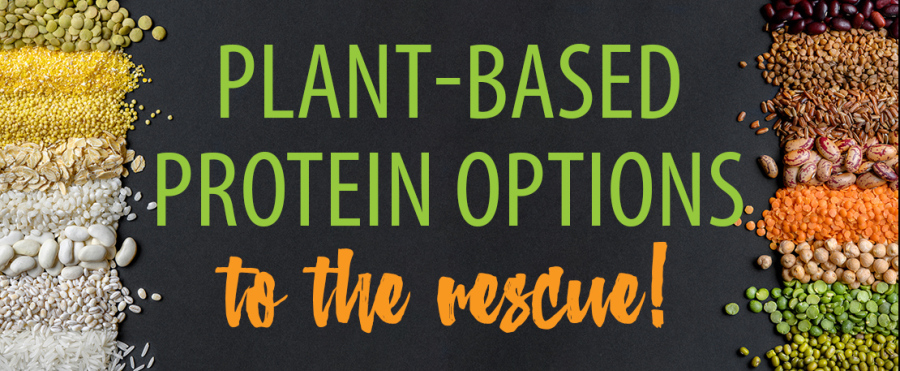
This post was written by Reliv Key Director Dawn Tucci and adopted from Reliv International.
These are times of adaptation and change. Around the world, people have been faced with decisions about how we are going to navigate life, now and into the future. One of the things that we are experiencing is a shift in the availability of the items we took for granted. For the first time for many of us, it has become harder to acquire personal items that we rely on as well as the foods that we eat. Restaurants are closed, so more people are cooking at home. Because of the disruption in business, we may see a shortage of certain types of meats.
Healthier Options
We know that protein is an essential part of a healthy diet. In looking for protein alternatives we may find that we stumble upon better choices out of necessity. Meat is a good source of protein, but alternative sources like plant-based protein have been touted as a healthier solution. There is evidence that many chronic diseases can be reduced by eating a whole-food, plant-based diet. Many also report that eating plant-based protein provides more energy, improved fitness, reduced inflammation, and better weight management. Eating a plant-based diet may even help you live longer, help the environment, and support your immune system.
Apples to Apples
First, let’s talk about how animal and plant proteins compare. When relying on plants for protein it is important to combine different plants to give your body a complete source of all the essential amino acids. Sound complicated? It’s really not.
Animal proteins provide all the essential amino acids your body needs, but individual plant products do not and must be combined. There are exceptions: soy and quinoa contain all essential amino acids. Grains and beans complement each other and together provide all these amino acids, so eating both in a day can provide you the same nutritional quality protein as if you were to eat meat.
In 2016, the Academy of Nutrition and Dietetics stated, “a vegetarian or vegan diet could provide all the nutritional requirements of adults, children and those who were pregnant or breast-feeding.” The right plant-based foods are an excellent source of protein and nutrients, often with fewer calories.
So what does your plate look like if you are not able to put meat on it and must rely on plant foods for protein? Eating a variety of these foods will give your body all the nutrients it needs to be healthy.
Fruits
Apples, grapes, berries, citrus fruits, bananas, strawberries, etc.
Vegetables
Peppers, avocados, corn, lettuce, peas, spinach, asparagus, broccoli, kale, etc.
Tubers
Root vegetables such as potatoes, parsnips, sweet potatoes, carrots, beets, etc.
Whole grains
Whole grain flours, bread, and cereals, brown rice, millet, oats, barley, etc.
Legumes
Beans of any kind, lentils, tofu, tempeh
Nuts and Seeds
Quinoa, all nuts, all seeds (sunflower, pumpkin, etc.)
Other
Supplements
Plant-based milk
How much protein do you need?
There is a simple formula to help you determine how much protein you need. The average adult needs a minimum of 0.8 grams of protein per kilogram of body weight per day, therefore multiply your weight by 0.8. So a 68kg person would need 54 grams of protein per day. Your protein needs may increase if you are very active and want to gain muscle.
How much protein do plant-based products have?
Per ½ cup:
- Chickpeas 7 gm
- Edamame 8
- Lentils 8
- Tofu 10
- Peanuts 20
- Almonds 16
- Quinoa 4
- Green peas 4
- Dry oats 6
- Wild rice 3
Vegetables – those with the highest protein (4 to 5 grams per cooked cup) include broccoli, spinach, asparagus, artichokes, potatoes, sweet potatoes, and Brussels sprouts.
Try rice and beans mixed together (7 grams per cup), a stalk of broccoli (4 grams per stalk), or a baked potato (8 grams for large).
Other sources:
- Reliv Nourish with Soy contains 7 grams of heart-healthy, plant-based protein per serving
- 1 Tbsp chia seeds 2 gm
- 28 gm nut butter 7 gm
- Nutritional yeast – a deactivated strain of yeast that has a cheesy flavour. It can be sprinkled on mashed potatoes, pasta and provides 14 grams of protein and 7 grams of fibre per 28 grams. Fortified nutritional yeast can also supply Vitamin B12.
Supplemental Solution
- When you consume a plant-based diet, there are additional nutrients besides protein that you will need to consume. Nutrients of concern when avoiding animal products are calcium, iron, and Vitamin B12. Some foods are fortified with these nutrients and can also be obtained by using a daily supplement like Reliv Nourish with Soy. In addition to providing 7 grams of plant-based protein, Reliv Nourish tastes great and has higher levels of essential vitamins and minerals for greater health benefits. It also includes LunaRich to support your immune system and promote healthy cholesterol levels and inflammatory response.
- The silver lining in this meat crisis may lead to an improvement in our health. Eating more plant-based proteins means that you will get more nutrition and fibre in your diet often with fewer calories. If you’re not willing to avoid meat entirely, you can still benefit from increasing your intake of plant-based foods. An additional benefit to supplementing with Reliv products is that they are shelf-stable. You can blend Reliv products with fruits and vegetables to create a smoothie, but they can also be made simply by mixing them with water or juice. Best of all, Reliv products can be delivered right to your door!